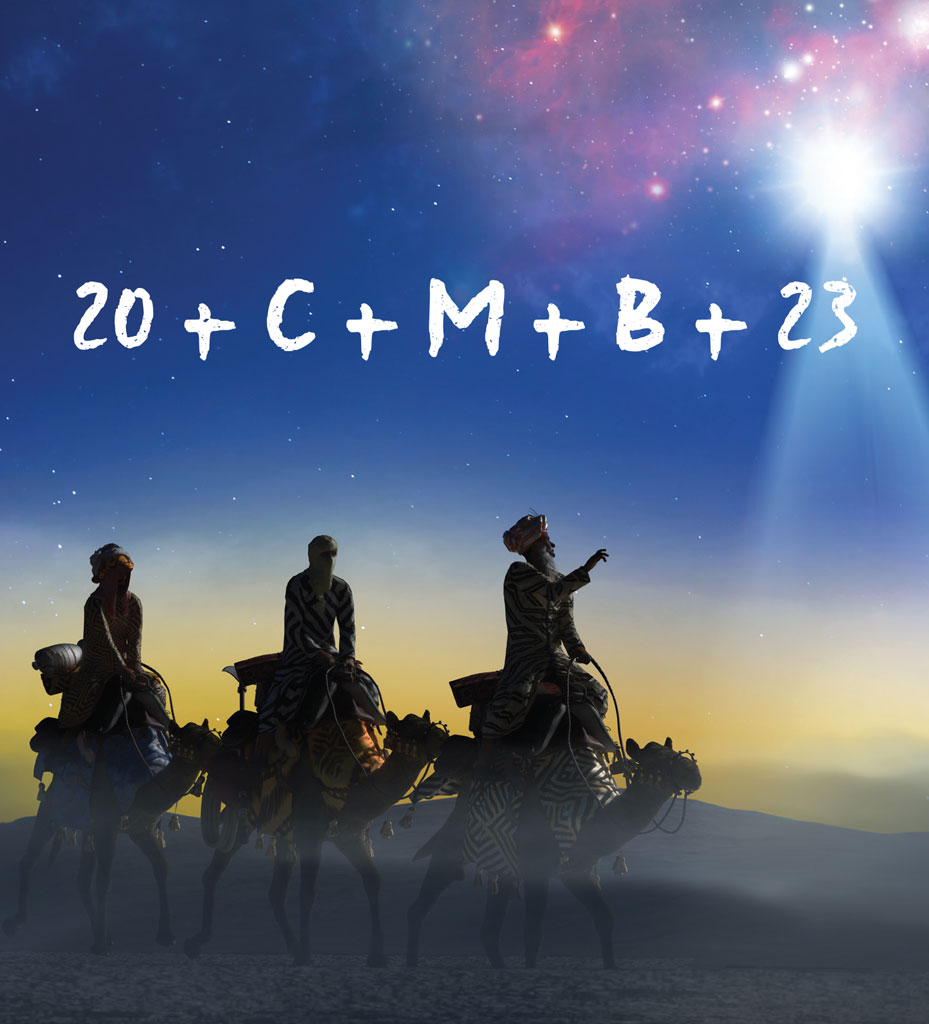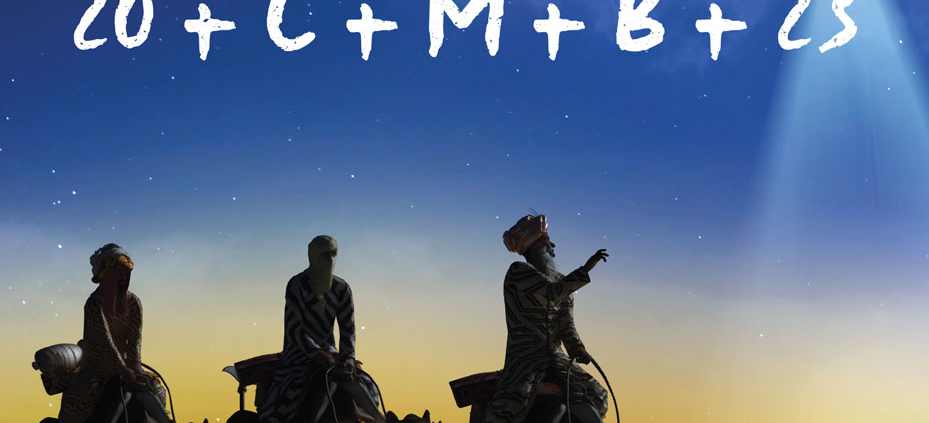Two Burnet County churches celebrate good will to all during Epiphany
Learning the meaning of the 12 days of Christmas can be an epiphany, which is exactly what that ubiquitous song is about.
Twelve represents the number of days between the traditional day of Jesus’ birth on Dec. 25 and the arrival of three wise men to the manger in Bethlehem on Jan. 5.
Epiphany is the revelation of Jesus to the gentiles as the Son of God, celebrated with the Feast of the Epiphany on Jan. 6. The feast day marks the beginning of the Season of Epiphany, which lasts until Ash Wednesday, the start of Lent.
“Christmas is all about peace, good will to all,” said the Rev. Michael Long, priest-in-charge at Episcopal Church of the Epiphany in Burnet. “The ‘to all’ part is what Epiphany is about. It’s the revelation of Christ to the gentiles, represented by the Magi. It shows the universality of Christ, that the incarnation is for everyone, not just folks that follow a narrow way.”
A retired priest, Long serves as a part-time minister for the Burnet church. For the past nine years, he has driven from his home in Pflugerville for Sunday services and a monthly business meeting. He is assisted by Steve Tomlinson, a senior student in The Iona School for Ministry who is serving the congregation before he enters the seminary.
At Trinity Episcopal Church in Marble Falls, the Rev. David Sugeno has served as full-time pastor for 13 years. Sugeno began his working life in field biology and horticulture.
“I always knew I wanted to be a priest someday,” he said. “I had these twin loves, but I knew from when I was in high school that, someday, I would go into the priesthood.”
Episcopalian priests differ from Catholic priests in that they can marry and have families. The position is also open to women. The Rev. Claire Field serves as associate rector for Trinity.
Both denominations are apostolic. They trace the priesthood and bishops back to St. Peter and pattern worship services after the most ancient practices of the church, which are derived from Jewish rituals.
In 1974, the two churches were connected as St. Paul’s Episcopal Church. The Burnet church was known as Epiphany Chapel, the Marble Falls church as Trinity Chapel. They were served by the same priest, trading services back and forth between the two each Sunday.Although now separate entities, their roots are entwined in history.
Both churches have experienced an ebb and flow of membership over the years and changed the way they serve their congregations with the times, including their approach to Epiphany. The two priests sadly noted that celebrations of the Feast of Epiphany have mostly fallen by the wayside in their churches.
The Season of Epiphany, however, remains an important part of their Sunday sermons, which focus on images of light in texts that reveal the divinity of Jesus.
Gospel texts, commonly referred to during the Season of Epiphany, include Jesus’ baptism in the River Jordan, when God publicly claimed him as his son; the first miracle told in the New Testament, when Jesus turned water into wine at a wedding in Canaan; and the transfiguration, when he is revealed in all his glory to the disciples on Mount Sinai. The last, Seguno pointed out, involves a strong image of light.
The seasonal blessing he uses during the Season of Epiphany also includes a reference to light: “May Christ the Son of God be manifest in you that your lives may be a light to the world.”
Seguno cited a favorite Bible passage, the prologue to John’s chapter in the Gospel, which refers to light.
“It’s one of my favorite, great images of light,” he said before quoting John 1:5. “‘And the light shines in the darkness, and the darkness did not overcome it.’”
This year, Jan. 6 falls on a Friday, but Seguno plans to touch on the Feast of the Epiphany during an informal service on Jan. 3, when he will hand out blessed chalk for the Chalking of the Doors (see story below).
Seguno and Field hold a 30-minute service at 9 a.m. every Tuesday in the Marble Falls church’s courtyard. (The service moves inside in inclement weather.) The practice began during the COVID-19 lockdown in 2020 and was so popular that they continued it after the church reopened its doors to in-person worship.
“Used to, you could have a service on Jan. 6, no matter what day of the week, and expect people to show up,” Seguno said. “Nowadays, you can’t get people to come. They are all too busy.”
In Burnet, Long plans to recognize Epiphany in his sermon on Jan. 8, the Sunday after the feast day. The church altar will be dressed in white, as it is for all major feasts of the church year, and the congregation might have a small potluck lunch. Plans have not been finalized, he said.
“We are a little-bitty parish, but Epiphany is important to us,” Long said. “When the church was formed, we got that name.”
The church and its name were dedicated in its current location at 601 N. Wood St. on Epiphany, Jan. 6, 1958.
Epiphany also holds importance for the Marble Falls congregation and its priest through the hope its message offers.
“One of the things we all need right now is hope, and, in many ways, Epiphany is a season of hope,” Seguno said. “Believing that Jesus was the Son of God gives us a sense of hope that is really kind of beyond reason. It gives us a light to fix our attention on that is beyond the darkness of this world.”
In Him was life, and the life was the light of humanity. — John 1:4
Chalking of the doors

The chalking of the doors is a Christian tradition practiced on or near Jan. 6, known on the Christian calendar as Epiphany, Twelfth Night, or Three Kings Day. It places a blessing on the church, building, or home where it is etched.
Using a piece of chalk, write above the entrance of your home the following: 20 + C + M + B + 23.
The letters have two different meanings.
They represent the names of the Magi who visited the baby Jesus shortly after he was born in a manger in Bethlehem. Although the names are not mentioned in the Bible, tradition has tagged them Caspar, Melchior, and Balthazar.
The blessing comes from those same initials, which also represent the Latin phrase Christus mansionem benedicat: “May Christ bless this house.”
The plus signs that separate the numbers and the initials represent the cross on which Jesus died 33 years later. The “20” marks the beginning of the year; the “23,” the end of the year to come.
The tradition also serves as a reminder to be as welcoming to others as the Magi were to Jesus.











Leave a Reply
Want to join the discussion?Feel free to contribute!